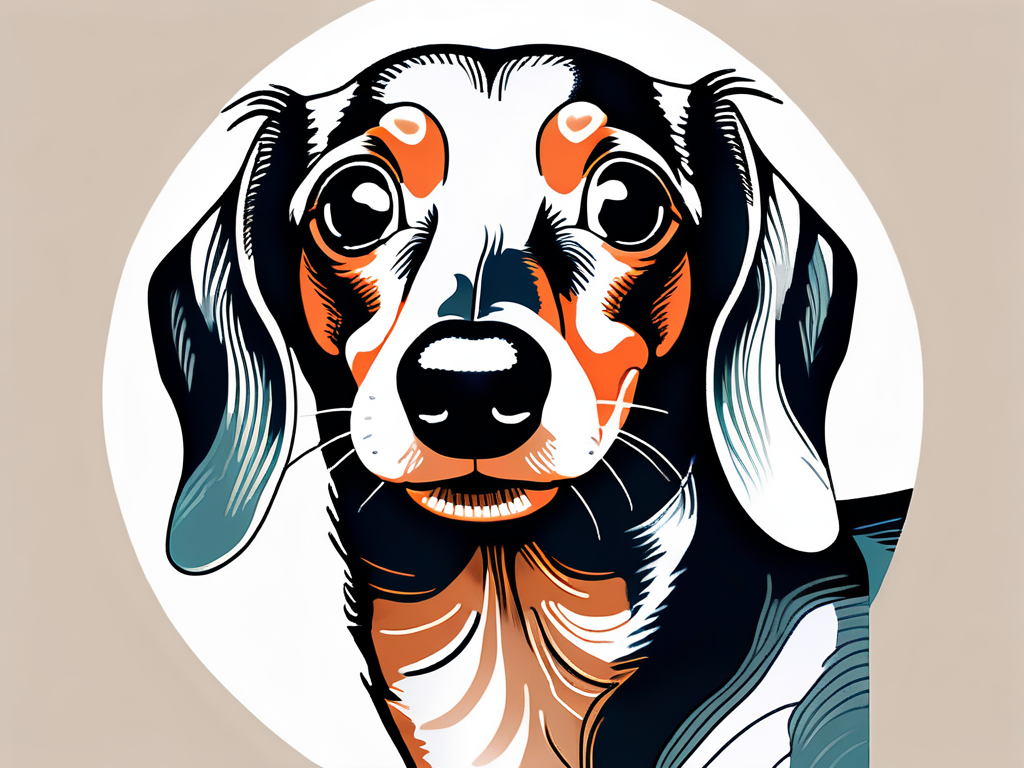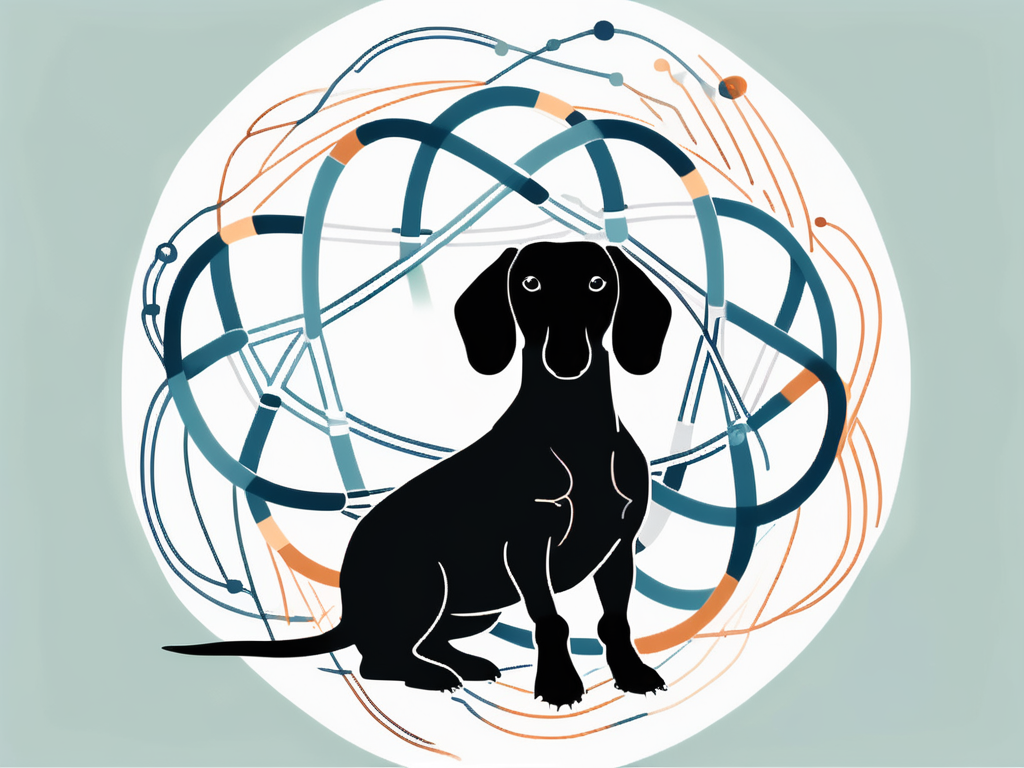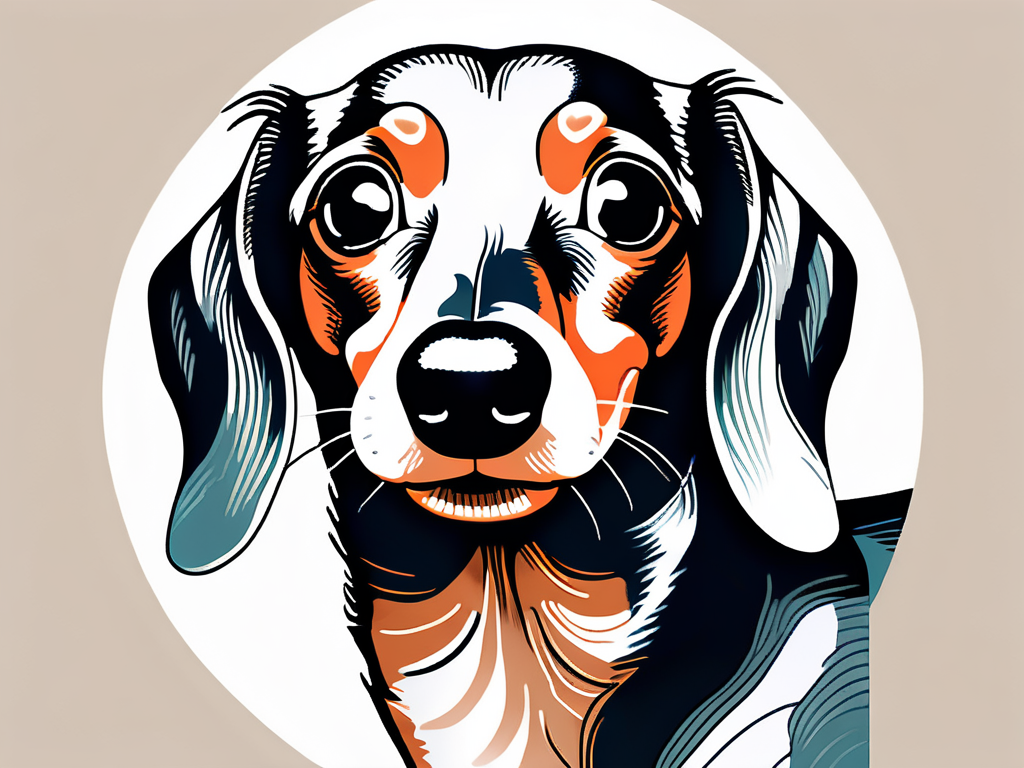Have you ever wondered how long your furry little Dachshund friend might be by your side? Well, you're in the right place, because today we're diving deep into the fascinating world of Dachshund lifespans! These adorable sausage dogs are known for their unique long bodies and big personalities, but how long can we expect them to stick around for some belly rubs and wagging tails? Let's find out!
Understanding Dachshund Lifespan
Before we delve into the factors that influence a Dachshund's lifespan, it's important to understand what factors come into play. On average, these delightful creatures live to be between 12 to 16 years old. However, it's not uncommon for some of these furry friends to surpass their expected lifespan and live well into their late teens. So what contributes to these variations? Let's dig a little deeper!

When it comes to Dachshunds and their lifespans, several factors come into play. One significant factor is the size of your furry friend. It's essential to remember that Dachshunds come in three different sizes: standard, miniature, and toy. Generally, smaller sizes tend to have longer lifespans compared to their larger counterparts. This is because smaller Dachshunds experience less strain on their bodies, reducing the risk of joint problems and other health issues associated with larger breeds.
Additionally, genetics, diet, exercise, and overall health maintenance play crucial roles in determining a Dachshund's lifespan. Good genes can set the foundation for a long and healthy life, while a balanced diet and regular exercise can help maintain their overall well-being. It's important to provide your Dachshund with a nutritious diet that meets their specific needs, as obesity can lead to a myriad of health problems and shorten their lifespan.
Dachshunds are prone to certain health issues, such as obesity, back problems, and genetic conditions like hip dysplasia. These issues can significantly impact their quality of life and overall lifespan. However, with proper care, regular check-ups, and a healthy lifestyle, you can help mitigate these potential issues and contribute to a longer and happier life for your furry companion.
Comparing Dachshund Lifespan to Other Breeds
So how do Dachshunds stack up against other dog breeds when it comes to lifespan? While they may not be at the top of the list, Dachshunds are known to have a relatively long lifespan compared to some other breeds. In fact, they often outlive larger breeds by a considerable margin. This can be attributed to their smaller size and the fact that they are generally less prone to certain health issues that affect larger dogs.
However, it's important to note that every dog is unique, and factors such as care, genetics, and predispositions to certain health conditions can vary from one individual to another, regardless of breed. While Dachshunds may have a reputation for living longer, it's crucial to provide them with the love, care, and attention they deserve to ensure they live their best and healthiest lives.
The Role of Genetics in Dachshund Lifespan
When it comes to Dachshunds, genetics can have a significant impact on their lifespan. These adorable dogs can be prone to certain genetic health issues that can affect their longevity. Let's take a closer look at some of these conditions and how they can impact our little friends.

Common Genetic Health Issues in Dachshunds
Dachshunds, like many other breeds, can be predisposed to certain genetic health issues that might affect their lifespan. One common issue is Intervertebral Disc Disease (IVDD), which can cause back problems and mobility issues. This condition occurs when the discs between the vertebrae of the spine degenerate, leading to pain, nerve damage, and even paralysis. It is essential to handle Dachshunds with care and avoid activities that put excessive strain on their backs, such as jumping from heights or rough play.
Additionally, Dachshunds are more likely to develop certain eye conditions, such as cataracts and progressive retinal atrophy. Cataracts can cause cloudiness in the lens of the eye, leading to vision impairment or even blindness. Progressive retinal atrophy is a degenerative disease that affects the retina, gradually causing vision loss over time. Regular eye examinations by a veterinarian can help detect these conditions early on, allowing for timely intervention and management.
It's crucial to be aware of any specific health issues that may run in your Dachshund's family lineage. Regular vet check-ups and appropriate screening can help identify these potential issues early on, allowing for proactive measures and providing your four-legged friend with the best possible care.
Breeding and Its Impact on Lifespan
The role of responsible breeding practices cannot be understated when it comes to the lifespan of our beloved Dachshunds. Breeding from healthy individuals with no known genetic health issues reduces the risk of passing down any predispositions to future generations. Responsible breeders prioritize the overall health and well-being of their dogs, which can positively impact the lifespan of the breed as a whole.
Responsible breeders conduct thorough health screenings and genetic testing to ensure that the breeding pairs are free from any hereditary health conditions. They also consider factors such as temperament, conformation, and overall quality of life when selecting breeding pairs. By doing so, they aim to produce healthy puppies with a reduced risk of developing genetic health issues, ultimately contributing to the longevity of the Dachshund breed.
In addition to responsible breeding, proper nutrition, regular exercise, and routine veterinary care are essential for maintaining the overall health and well-being of Dachshunds. By providing them with a balanced diet, engaging them in appropriate physical activities, and ensuring they receive necessary vaccinations and preventive treatments, we can help our Dachshunds live long, happy lives.
Nutrition and Dachshund Lifespan
Dachshunds, just like any other dog, need a well-rounded and balanced diet to thrive and live a long, healthy life. The food we provide our furry friends has a direct impact on their overall well-being, including their lifespan. Here's what you need to know about the ideal diet for your little sausage dog!

Ideal Diet for a Dachshund
When it comes to feeding your Dachshund, it's essential to provide them with high-quality, nutritious food that is specifically formulated for their unique needs. Since Dachshunds are prone to obesity, it's crucial to monitor their calorie intake and avoid overfeeding them. Additionally, Dachshunds should have a diet rich in lean proteins, healthy fats, and a moderate amount of carbohydrates to fuel their energetic selves.
Consulting with your veterinarian is always recommended to ensure you are providing the best possible diet for your individual Dachshund's needs. Remember, a happy tummy leads to a happy and healthy Dachshund!
The Impact of Obesity on Lifespan
We all like to spoil our furry friends with treats and extra helpings of food. However, it's important to keep in mind that obesity can have a drastic impact on a Dachshund's overall health and lifespan. Carrying excess weight puts additional strain on their joints and back, increasing the risk of developing various health issues.
Regular exercise, portion control, and avoiding excessive treats will help keep your Dachshund in tip-top shape. Remember, moderation is key, so let's keep those sausages lean and healthy!
Exercise and Dachshund Lifespan
Dachshunds are known for their playful and active nature. Providing them with sufficient exercise is not only essential for their mental and physical well-being but can also impact their lifespan. So, let's get up and get moving with these lively little companions!
Recommended Exercise for Dachshunds
Dachshunds have bundles of energy packed into their compact bodies, so it's crucial to engage them in regular exercise to satisfy their natural instincts. Going for daily walks, playing fetch, and engaging in interactive games will help keep your Dachshund's mind sharp and their body fit.
However, it's important to strike the right balance. Over-exercising or engaging in high-impact activities can put strain on their backs and joints. Be mindful of their limitations and avoid activities that may be too rough or strenuous for their long bodies. Remember, we want them to have fun, but we also want to keep them healthy and safe!
Risks of Over or Under Exercising
Just as over-exercising can pose risks, under-exercising can lead to other issues, such as weight gain and behavioral problems. Dachshunds thrive on mental and physical stimulation, so ensuring they get an appropriate amount of exercise helps prevent boredom and keeps them happy. Strike that balance, and you'll have a happy, healthy, and long-living Dachshund by your side!
Regular Health Check-ups and Dachshund LifespanRegular visits to the vet are a crucial aspect of maintaining your Dachshund's health and potentially prolonging their lifespan. These routine check-ups allow veterinarians to monitor your furry friend's overall well-being, identify any potential health concerns early on, and provide timely interventions and care. Let's take a closer look at why regular vet visits matter!
Importance of Regular Vet Visits
Regular vet visits are essential for keeping track of your Dachshund's health. During these check-ups, your vet will perform a comprehensive physical examination, which can help catch early signs of health issues, screen for genetic predispositions, and provide preventive care such as vaccinations and parasite control.
Additionally, your veterinarian can provide guidance specific to your Dachshund's individual needs, such as dental care, grooming tips, and nutritional advice. By partnering with your vet, you can give your Dachshund the best chance at a long and healthy life!
Common Health Tests for Dachshunds
When it comes to specialized health screening for Dachshunds, there are a few tests that are commonly recommended. These tests help identify potential issues early on, allowing for timely intervention and appropriate care. Some common tests include checking for Intervertebral Disc Disease (IVDD), hip and elbow dysplasia, and eye examinations.
By staying proactive and performing these recommended health tests, you can ensure that any potential issues are identified early, giving your Dachshund the best chance at a long, happy, and healthy life!
The Long and Whiskered Journey
By understanding the various factors that influence a Dachshund's lifespan, from genetics to proper nutrition and exercise, we can help pave the way for a long and joy-filled journey with our furry companions. Remember, your Dachshund's lifespan is ultimately influenced by a combination of genetics and the care you provide. So, let's cherish every wag, snuggle, and tail waggle as we embark on this incredible journey with our lovely little Dachshunds!


Share:
The Correct Pronunciation of Dachshund
The Complete Guide to Dachshund Colors